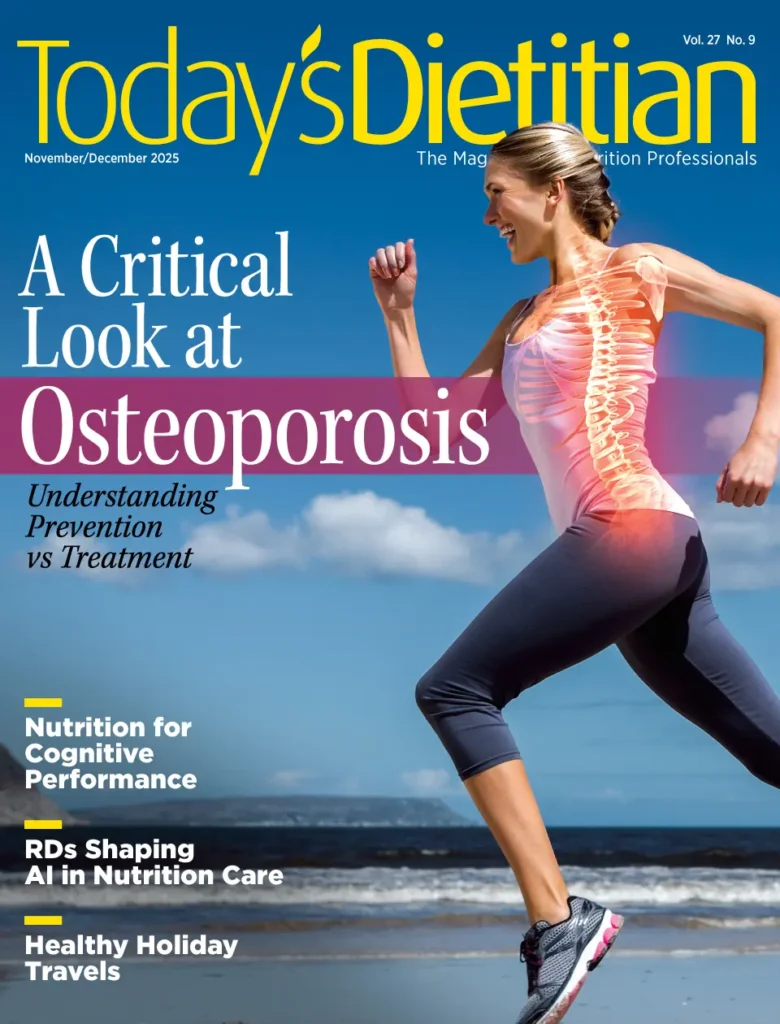By Matthew Ruscigno, MPH, RD
The 2016 Rio Olympics are in full swing, and worldwide sports fans, casual or otherwise, are tuning in by the millions to watch elite athletes compete in events for which they’ve been training for years. From marathon running to weightlifting to the modern pentathlon, there’s a huge diversity in athlete types, preparation methods, and training approach. Regardless of the discipline, nutrition plays a significant role in preparation for the world stage of the Olympic games.
Olympic athletes are the best at what they do, and at those levels of performance, the specifics of their nutrition plan become increasingly important. They have to be especially careful when they travel across the world to compete; a new environment coupled with the excitement of the big day and being around so many competitors can make eating even more challenging. Here’s a closer look at some of the issues these elite athletes have to consider.
Balancing Caloric Intake in the Olympic Village
Thanks to the popularity of Olympic gold-medalist swimmer Michael Phelps, it’s now common knowledge that professional athletes sometimes need to consume large amounts of food. Phelps’ total daily caloric intake has been reported to approach 10,000 kcal per day. That’s five times what an average person would require. However, high calorie intakes such as these aren’t uncommon. In my own private practice, I’ve worked with elite athletes, especially cyclists, who have needed several thousand kcal per day. One such athlete, who recently won a US national championship, was eating a healthful diet comprised of mostly whole plant foods like whole grains, beans, vegetables, and fruits. These plant foods, while healthful, have a large volume due to their high fiber content; this means they have a lower caloric density. To help him meet his needs, we looked to discretionary calories, which are less health promoting but more calorically dense. In his case, we chose cashew-based ice cream, an easy 1,000-kcal addition to his day.
At the Olympic Village, athletes find it difficult to balance caloric intake because of the overwhelming amount of food available. Most competitors arrive during their taper—a period of reduced training in preparation for their goal event. With this reduction in training comes a reduction in caloric needs. Some athletes struggle at this point because hunger can be a significant issue. And this state can be exacerbated by readily available free food. McDonald’s, a longtime Olympic sponsor, is stationed in the middle of the village, and the entire menu is free for athletes.1 With emotions running high, in addition to preevent stress, overeating becomes a real concern for Olympians, especially when faced with foods they’re prone to overeat, such as refined carbohydrates, processed meats, soda, and fried foods. Some teams are aware of this and have their coaches and dietitians accompany them to meals to help guide their decisions.
Eating Whole Foods
While caloric needs rank high in importance during training and competition, quality is as important as quantity. Unfortunately, this isn’t always top of mind among elite athletes, as many believe the myth that as long as they burn off the calories they eat and they’re in good physical shape, the types of foods they consume don’t matter. But there are some athletes at this year’s games who are adhering to good nutrition and focusing on a mostly whole foods, plant-based diet. One is Morgan Mitchell, a 21-year-old 400-meter sprinter on the Australian team. Mitchell, the Australian national champion titleholder, saw a documentary that inspired her to eat a plant-based vegan diet.2 Fortunately, she was able to work with a knowledgeable dietitian who encouraged her to eat whole grains, beans, and tofu to get the nutrients and energy she needed to compete at the highest level. She represents Australia in two Olympic 400-meter track and field events.
Another athlete focusing on plant-foods may surprise you: Kendrick Farris. He’s the only male Olympic weightlifter from the United States competing at this year’s games and is an advocate of a whole foods, plant-based diet. Unlike many people who switch to eating more plant foods, Farris gained weight, purposefully, to compete at the next highest weight class. This is his third time competing at the Olympic games.3
As a dietitian, I’m often curious about what people in unique situations eat, and the Olympics are no different. As you watch the Rio Games this month, think about how influential a good nutrition plan, or lack thereof, is for each athlete. These meals are important right down to, and including, the one immediately before competition. Some have argued that we’re approaching the peak of what athletes are capable of doing,4 though I’d contend that more emphasis on good nutrition could continue to expand elite athletes’ capabilities. I’m excited to see how Mitchell, Farris, and all the other athletes do this year.
For more information on how sports dietitians on the US Olympic Committee counsel their star athletes, visit http://www.teamusa.org/About-the-USOC/Athlete-Development/Sport-Performance/Nutrition.
— Matthew Ruscigno, MPH, RD, is the coauthor of No Meat Athlete: Run on Plants and Discover Your Fittest, Fastest, Happiest Self and a mere mortal who has raced ironmans, ultramarathons, and a 500-mile, nonstop bike race across Death Valley called the Furnace Creek 508. He owns a private practice in Los Angeles.
References
1. Block M. Rio’s Olympic village: patriotic manicures, not a lot of coffee. NPR website. http://www.npr.org/2016/08/04/488637708/rios-olympic-village-patriotic-manicures-not-a-lot-of-coffee. Published August 4, 2016.
2. Payten I. Morgan Mitchell’s Rio Olympic campaign transformed by a documentary on animal cruelty. Daily Telegraph website. http://www.dailytelegraph.com.au/sport/olympics-2016/morgan-mitchells-rio-olympic-campaign-transformed-by-a-documentary-on-animal-cruelty/news-story/521856cf99e888ab34f4a73513a4f825. Published July 25, 2016.
3. Levinsohn D. Who is … Kendrick Farris? NBC Olympics website. http://www.nbcolympics.com/news/who-kendrick-farris. Published June 14, 2016.4. Smith KJP. Are we reaching the end of world records? Scientific American website. http://www.scientificamerican.com/article/are-we-reaching-the-end-of-world-records/. Published August 5, 2016.


